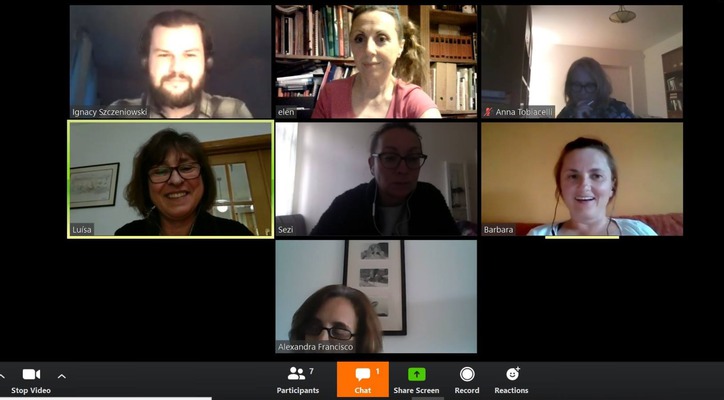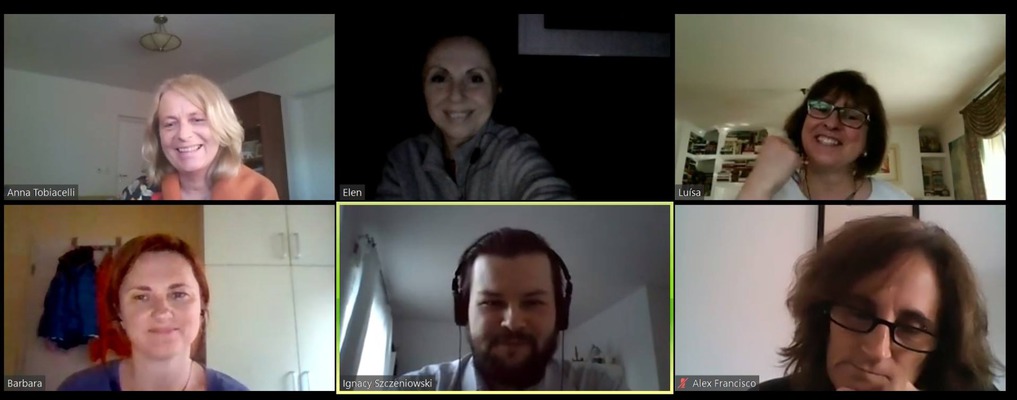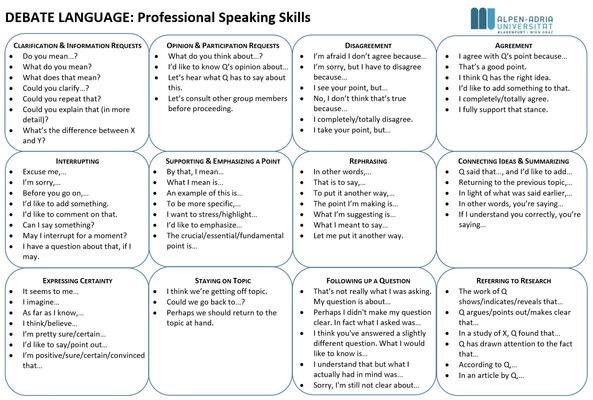11/05 Teachers meet again to discuss final details and learn about judges' role in a debate

I. Rules for good refereeing:
0. Take notes!
1. Judge as an elaborate but non-specialized audience.
2. Judge in isolation (abstraction) from your feelings and opinion on a given topic.
3. Do not judge the debate from the perspective of arguments that have not been made.
4. Do not finish or develop speaker’s argument by yourself.
5. The assumption (axiom) is only what the teams agree in the debate.
6. Arguments should be weighed, not counted.
7. Substantive arguments are always stronger than emotional arguments.
8. There is a presumption of truth.
9. A substantive error strikes both sides equally.
10. A logical error is a serious offense and it is the judges who should recognize it.
II. What to consider when refereeing?
1. Quality, cohesion and number of arguments.
2. The impact of counterarguments on the current state of the debate.
3. Axes of dispute.
4. Impact of argumentation on discussed values. (should be presented by the team)
5. The effects of proposed solutions. (should be presented by the team)
6. Team involvement on changes in the debate and on discussion in the opponent's field. (questions!)
7. The speaker’s role.
8. Rhetoric.
III. Common mistakes in the debate:
1. “Slippery slope” - building a series of probabilities that ends in extreme.
2. Narrowing the thesis – e. g. false dichotomy. (the wider the team understands the argument for discussion, the better)
3. No expansion of argument - just a statement and an example. (and an
4. “Strawman” - distortion or criticism of the argument that has not been made.
5. Argument from authority.
6. Ad personam. (should be particularly punished)
7. Eristic.
27/04 Teachers' webinar with Ignazy to prepare the debate

Nothing like talking with experts to know our way around. Thank you!
We will be sharing here our documents and steps towards the actual debates.
Project regulations
Here are the project regulations. You can find the document under Debate resources to share with your students.
- Participants are responsible for the content of their emails, messages etc. sent to other participants by any media.
- Participants have to respect different opinions, not insult others in any way, not attack nationality, background, gender or language of others.
- Breaking rules of personal culture or other unaccepted behaviour will be punished by the removal of online meetings or/and the entire project.
- Access to participants’ personal data is subject to eTwinning security and must not be shared with third parties.
- Online meetings and debates will be conducted using Zoom, Meet or Skype. Students who take part in an online activity declare that they accept the terms of the project regulations.
- Students are obliged to take part in online activities they were invited to by their teachers.
- Anybody must not invite other people to project online activities.
- Students are obliged to use their own names as the participant’s name.
- During online meetings, all participants should have their cameras turned on.
- All microphones have to be muted, except when somebody is asked by the host to speak.
- Participant who would like to join conversation has to raise hand or use the raise-hand icon in Zoom.
- The host decides about the order in which participants speak.
- Do not discuss things which are not directly related to the topic of the meeting.
- The chat window can be used for short written responses on the host’s question. Private conversations with other participants are prohibited during an online meeting.
- Participants may be divided into smaller groups. All groups have to be international ones.
- Students cannot change their place in groups without the host/teacher’s permission.
- During online meetings it is forbidden to take photos, screenshots, record in any form and by means of any devices the shared materials, images or voices of participants.
- Participants who violate the project rules will be punished according to local school regulations and their country’s law.
Debate language
Another document also to be found in PDF format under Debate Resources. It's important that students get used to using these language structures. It will help them later on in life when working in a multicultural, multilanguage environment.

Links to the documents being used to organise the debates
WISE WORDS debating rules and Q&A - students
Other important documents